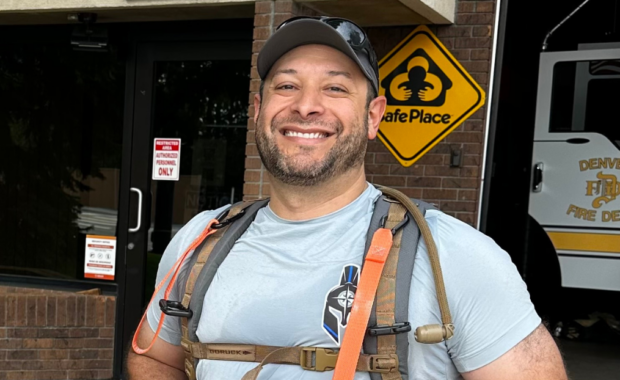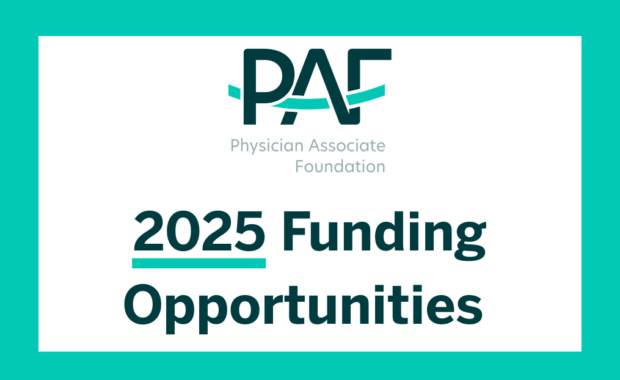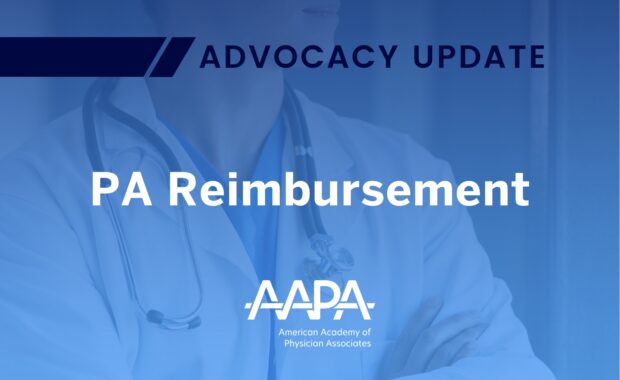PA Eager to Learn Primary Care Obesity Management Tools
Certificate Program in Inaugural Year for PAs and NPs
July 18, 2018
By Eileen Denne, CAE
Recent data from the Centers for Disease Control and Prevention shows that more than one-third of adults are affected by obesity. Adults affected by obesity are also more likely to suffer from other chronic medical conditions such as heart disease, stroke, type 2 diabetes, and certain types of cancer—some of the leading causes of preventable death.
The Primary Care Obesity Management Certificate Program (PCOMCP) supports PAs and NPs who are interested in expanding care to patients affected by obesity. It was developed by AAPA in collaboration with the American Association of Nurse Practitioners (AANP) and the Obesity Medicine Association (OMA), The AXDEV Group (AXDEV), and Integrated Learning Partners (ILP).

In its inaugural year, almost 100 PAs and NPs are taking part in the program, which includes participation in quarterly webinars, engagement in an online learning community, individualized coaching, and two practice-related quality improvement projects—one clinically focused and the second business focused. In addition, with support from other learners, peers, faculty, and coaches, participants will engage in a rich social and collaborative learning community.
Upon completion of the program, participants will earn more than 30 continuing medical education (CME) credits and receive an OMA-issued Certificate of Primary Care Obesity Management, recognizing the provider has reached a higher level of expertise in treating patients affected by obesity.
Last year, AAPA developed Obesity Leadership Edge (OLE), an online curriculum and prerequisite to the certificate program, that provides PAs with the skills they need to effectively communicate about weight with their patients.
AAPA interviewed PCOMCP participant Scott Kastning, APP Dyad Leader, MidMichigan Health, about the program.
Why did you decide to sign up for the Primary Care Obesity Management Certificate Program last spring?
SK: I’ve become increasingly frustrated by treating disease after chronic disease without ever getting to the core of the problem—obesity. The majority of patients I see who suffer from chronic disease have obesity, and the first line treatment is “diet and exercise.” We see this in guidelines and remember it from school, but there’s so much more to it. Simply telling patients to “diet and exercise” doesn’t go very far. Yet, I don’t recall more details because it isn’t something well taught in medical education. I want to further my learning, so I can be a better resource for patients. I want to make a significant impact on obesity in my clinic and my community.
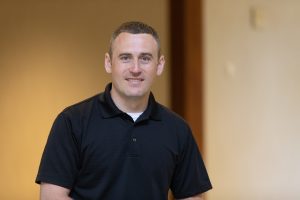
Had you explored other options for learning about obesity management?
SK: The first step towards change for me started through precepting a student. His family follows a whole food plant-based diet, and his knowledge on this topic really impressed me. Observing him educate patients sparked an interest for me. I wanted to offer this to my patients too.
My wife, April, is also a PA in family medicine. Her undergraduate degree is in nutrition science, and we have three young children. Both of us gravitated towards improving our nutrition for our patients and our family. We watched a documentary called “Forks over Knives” on Netflix and researched further opportunities. We found a plant-based nutrition certificate program through eCornell. It looked interesting but cost over $1,000. Later we found the PCOMCP program on the AAPA website. Not only was it free, but it offered much more than nutrition counseling. For example, the program includes personal coaching, a support network of colleagues, in person and online training, and goal-setting to help drive real change in each participants’ practice. This seemed like the perfect fit for what we were hoping to accomplish.
Are there specific patient outcomes you hope to accomplish during the PCOMCP?
SK: I want to see increased identification of patients with obesity in my practice. I get caught up in managing multiple chronic diseases and don’t make time for what is arguably the most important chronic disease, obesity. That needs to change.
The next step is doing something about it. I must address the problem and do so routinely. The outcome measure will be the percentage of patients with obesity who receive an intervention. A further outcome measure will be measuring success of our interventions. Am I truly helping patients with obesity? Process improvement will help ensure I am delivering effectively to my patients.
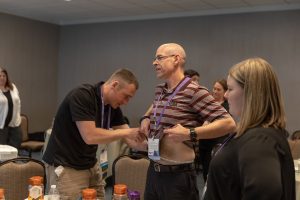
How did you benefit from the May 22 Obesity workshop in New Orleans?
The May 22 workshop included: Introduction, Dr. Hamdy; Nutrition as Therapy and Eating Behavior Recognition – Daily Food Log, Angela Golden & Dr. Hamdy; Physical Activity Case Study; Demonstration of Thera Band Exercises, Karli Burridge; Optimizing Patient Engagement, Angela Golden; and PDSA Cycle Plans, Sherlyn Celone-Arnold & Karli Burridge.
SK: It helped solidify that I am engaging in a program. I met others who share a similar vision and passion. I learned about more resources available to us such as the Obesity Medicine Association (OMA). We also received interactive instruction on obesity medicine.
What aspect of the workshop was most helpful?
SK: Each aspect of the workshop was meaningful and important because they complement each other well. If I had to choose one, it would be nutrition as therapy and eating behavior recognition. Changing nutrition can have the largest and most immediate impact on obesity.
Hve you been able to implement anything you learned into your practice yet? If so, what?
SK: Our organization has some predetermined quality measures that we focus on for Medicare’s Merit-based Incentive Payment System (MIPS). Additionally, each practice selects two measures on its own. We chose “Body Mass Index (BMI) Screening and Follow-Up Plan.” This will drive further efforts from my support team to assist in reaching our patient goals with obesity.
What do you look forward to in planned future programming for PCOMCP: clinical consult webinars, coaching calls, group discussion on Huddle, or using the resource center?
SK: I’m excited to use each of these tools! I’m impressed by the support offered in this program. The passion exemplified by our instructors was inspiring. The benefits of engaging in this program will be transformational to my practice. I can’t wait to share what I learn with patients and colleagues!
Eileen Denne is director of Corporate Communications for AAPA. Contact her at [email protected].
Thank you for reading AAPA’s News Central
You have 2 articles left this month. Create a free account to read more stories, or become a member for more access to exclusive benefits! Already have an account? Log in.
